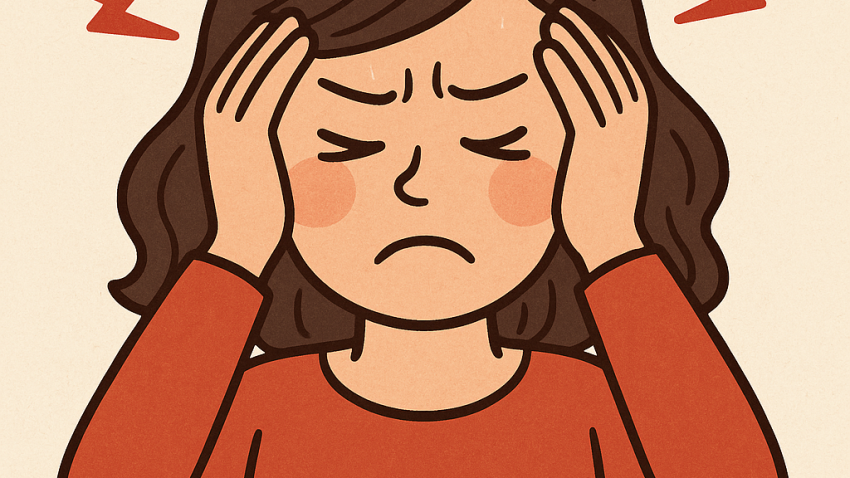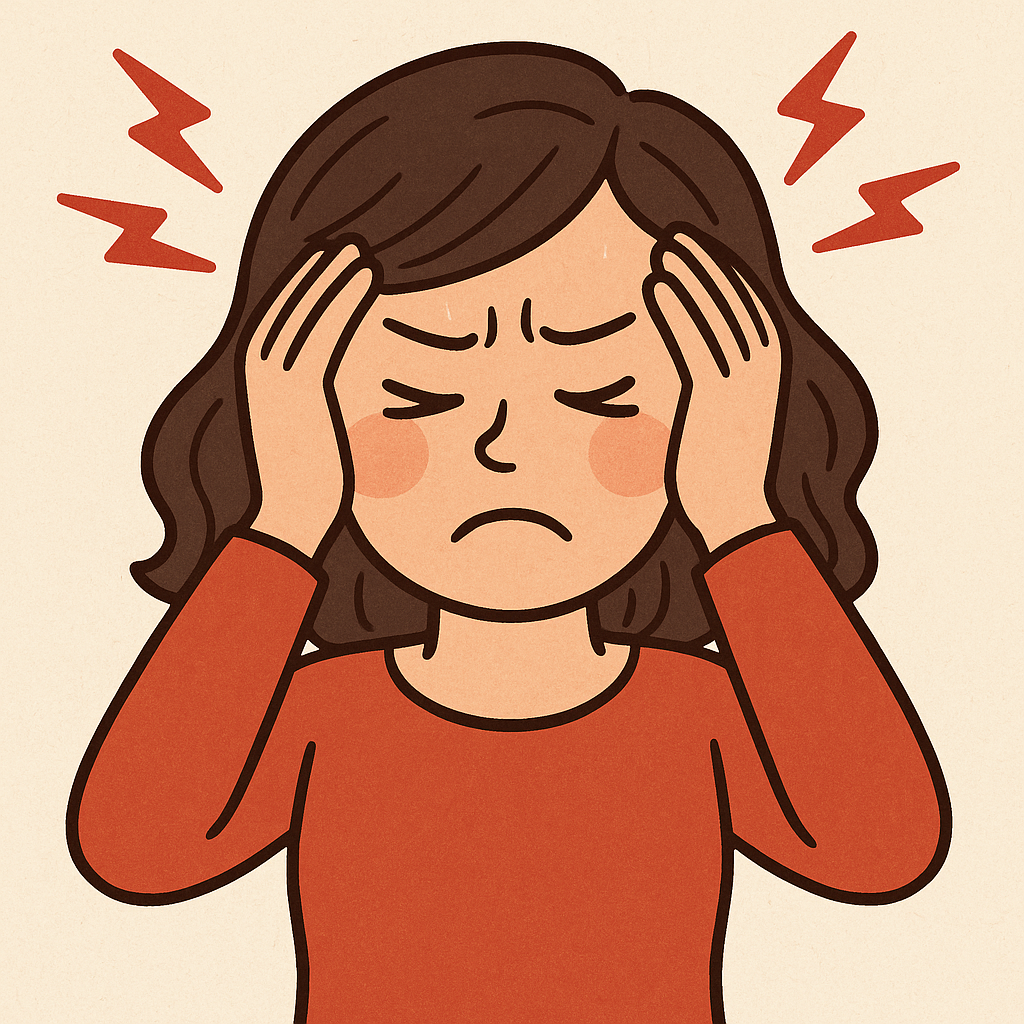
ADHD and Migraines in Women: Understanding the Link & Finding Relief
Many women with ADHD also struggle with migraines — and the overlap isn’t just coincidence. Research confirms that people with ADHD are more likely to experience migraines, and women are especially vulnerable due to hormonal shifts, stress, and sensory sensitivity.
This guide explains the connection between ADHD and migraines, what the science says, and ADHD-friendly strategies to help manage both.

Why Migraines Are More Common in Women with ADHD
Living with ADHD means your brain already works differently, and when migraines are added on top, life can feel even more challenging. Some reasons women with ADHD are more prone to migraines include:
- Hormonal changes: Estrogen and progesterone fluctuations can make migraines more frequent or intense, especially during PMS, perimenopause, and menopause.
- Stress and cortisol: ADHD women often carry chronic stress, which spikes cortisol and increases migraine risk.
- Sensory overload: Bright lights, loud sounds, and strong smells — already overwhelming for ADHD brains — can easily trigger migraines.
- Sleep disruption: ADHD-related sleep issues, like delayed sleep cycles, increase migraine vulnerability.
What Research Says About ADHD and Migraines
Recent studies confirm what many ADHD women already know from experience: migraines and ADHD often travel together.
- Higher risk overall: Adults with ADHD are almost twice as likely to experience migraines as people without ADHD.
- In children: Migraine is nearly three times more common in children with ADHD compared to those without.
- Mothers too: Mothers of children with ADHD also report more migraines, suggesting a genetic link.
- Shared symptoms: Even people with migraines who don’t have ADHD show higher levels of impulsivity, hyperactivity, and inattention.
- Shared biology: Both conditions involve disruptions in dopamine, serotonin, norepinephrine, and GABA — brain chemicals that regulate attention, mood, and sensory processing.
- Genetic overlap: Researchers have identified dozens of genetic markers linked to both ADHD and migraines, reinforcing their biological connection.
- Migraine type matters: Migraine with aura carries an even higher ADHD risk (about 2x greater).
💡 In plain language: If you live with ADHD and migraines, you’re not imagining the connection — science backs it up.
ADHD-Friendly Migraine Management Strategies
While there’s no one-size-fits-all cure, ADHD-friendly approaches can make living with both conditions more manageable:
1. Track Your Triggers
Use a simple ADHD-friendly journal or app to note when migraines happen and what came before (sleep, stress, hormones, sensory overload).
2. Build in Rest Before Overwhelm
Plan recovery time after high-demand days. Use timers or body doubling to help you stop before your system crashes.
3. Sensory Soothing
- Blue-light blocking glasses for screen use.
- Noise-canceling headphones for loud spaces.
- Scent-free products if smells are a trigger.
4. Supportive Routines
- Stay hydrated throughout the day.
- Keep meals and snacks steady — low blood sugar can worsen headaches.
- Protect your sleep schedule with alarms, weighted blankets, or calming routines.
5. Medical Care and Advocacy
Talk with your doctor about your migraine patterns, especially if you’re in perimenopause or menopause. Advocate for workplace accommodations like dimmed lights or flexible breaks.
ADHD and Migraine FAQs
Does ADHD cause migraines?
Not directly, but ADHD brains are more vulnerable to triggers like stress, sensory overload, and sleep problems that bring migraines on.
Why are women with ADHD more prone to migraines?
Hormonal changes, chronic stress, and sensory sensitivity increase risk. Genetics also play a role, with overlap between ADHD and migraine markers.
What are ADHD-friendly ways to manage migraines?
Track your triggers, use sensory tools, hydrate, keep meals steady, and build in rest before overwhelm hits.
Can ADHD and migraines run in families?
Yes. Research shows mothers of children with ADHD are more likely to experience migraines, pointing to a genetic connection.
Final Thoughts
If you live with both ADHD and migraines, you are not alone. The overlap is real, and understanding it can make managing both conditions easier. Small ADHD-friendly shifts — like tracking triggers, soothing your senses, and pacing your energy — can reduce the intensity and frequency of migraine attacks.
✨ Want more support? Check out my Flourish program or join my newsletter for weekly ADHD-friendly tools.
References
Gonzalez-Hernandez, A., Cano-Yepes, A., Sainz de Aja-Curbelo, V., Santana-Farré, R., Rodríguez-Sosa, T., & Cabrera-Naranjo, F. (2023). Attention Deficit Hyperactivity Disorder in Adults With Migraine. Journal of Attention Disorders, 28(1), 117–122. https://doi.org/10.1177/10870547231199256
Fortes, H. M. S., & Andrade, C. L. (2023). Association between attention deficit hyperactivity disorder (ADHD) and migraine: A review of observational studies. Headache Medicine, 14(1), 13–17. https://doi.org/10.48208/HeadacheMed.2023.4




